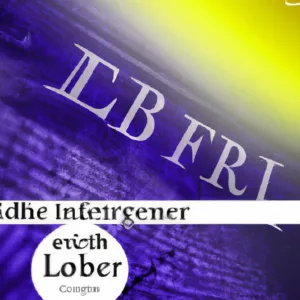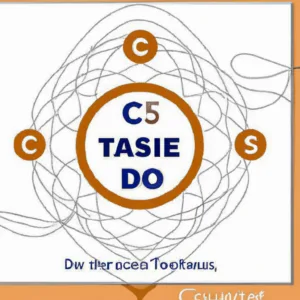
Should I put my bank accounts in my trust?
Putting your bank accounts in your trust can provide added protection and make estate administration easier. Consult with a financial planner to discuss if this strategy is right for you.
Blog

Putting your bank accounts in your trust can provide added protection and make estate administration easier. Consult with a financial planner to discuss if this strategy is right for you.

New York’s elder law encompasses a wide range of legal issues affecting seniors, from healthcare to estate planning. Understanding these laws is crucial for ensuring the well-being and protection of older adults in the state.

Discovering what constitutes a healthy net worth at each age can offer insights on financial planning. Whether you’re just starting out or nearing retirement, understanding this key metric can help guide your financial decisions.

While some may dream of inheriting a fortune from a long-lost relative’s will, not everyone can be a beneficiary. Those who cannot include witnesses to the will, minors, and those who have been declared mentally incompetent.

Trying to avoid probate? Consider creating a living trust, designating beneficiaries on financial accounts, implementing joint ownership, or gifting assets during your lifetime. These strategies can help your loved ones avoid the costly and time-consuming probate process.

Deciding whether to place your checking account in your trust requires careful consideration. While it can offer benefits such as avoiding probate and ensuring a smooth transition of assets, there are also potential drawbacks to be aware of. It’s important to weigh the pros and cons before making a decision that aligns with your financial goals and estate planning needs.

Estate planning can be a daunting task, but breaking it down into 7 simple steps can make the process more manageable. From assessing your assets to creating a comprehensive plan, each step plays a crucial role in securing your legacy.

Elder Law encompasses legal issues affecting seniors such as estate planning, long-term care, retirement benefits, and more. It aims to protect the rights and well-being of the elderly.

Have you ever wondered if you can gift your house to your child? Find out the legal implications and tax considerations before making such a decision.

Considering a trust for your estate planning needs? Wondering if it’s worth the cost? Explore the benefits and drawbacks to determine if a trust is the right choice for you.

Many parents consider gifting their homes to their children as a way to secure their future. But can you gift your house to your daughter and still continue living in it? Let’s explore the legal implications and potential benefits of this decision.

Trust is the cornerstone of any relationship, business or personal. The 5 C’s of trust are competence, consistency, communication, candor, and connection. Each of these elements plays a vital role in building and maintaining trust with others.

Curious about the tax implications of money from a trust? Find out the answers to all your questions in this informative article. Dive into the world of trusts and taxes to better understand how it all works.

There are some assets that may not be included in a person’s estate when they pass away. These can include life insurance policies, assets held in a trust, and retirement accounts. Understanding what assets are not part of an estate can help in estate planning.

Navigating the probate process can be a daunting task, with common challenges such as family disputes, lengthy court proceedings, and complex legal requirements. Understanding these obstacles can help ensure a smoother process for all involved.

The issue of sexual abuse of minors continues to be a harrowing reality in our society. It is a dark stain on the fabric of humanity, shattering the innocence of our children and leaving scars that can last a lifetime.

What is considered a large inheritance? The answer varies depending on perspective. Some may view anything over $1 million as significant, while others may only consider inheritances of $10 million or more as truly sizable. Ultimately, the definition of “large” is subjective.

Many homeowners wonder if transferring their property to their children’s name can help avoid inheritance tax. Let’s explore the legality and implications of this common strategy.

Delving into the realm of estate planning and setting up a trust can be daunting. Many wonder, “How much does a trust cost?” Let’s uncover the key factors that influence the price tag of establishing a trust.

Learn the art of estate planning to avoid probate and ensure your assets are distributed smoothly. Strategies like setting up a living trust or titling assets properly can help you bypass the lengthy and expensive process of probate court. Plan ahead to protect your loved ones’ inheritance.

Building trust takes time and consistent effort. Trust can easily be shattered by one wrong move or dishonest act. It requires vulnerability and transparency, making it a delicate bond that must be earned through actions, not just words.

When it comes to managing your elderly parent’s finances, the question of whether or not to be added to their bank account is a complex one. It is important to consider factors such as trust, transparency, and the potential for abuse.

Formal probate proceedings involve court supervision and extensive documentation, while informal probate is simpler and less bureaucratic. Understanding the differences can help you navigate the process more effectively.

During the probate process, certain information becomes publicly available, such as the deceased person’s assets, debts, and beneficiaries. This transparency helps ensure fairness and accountability in distributing the estate.

Avoiding the probate process is possible with careful estate planning. Setting up a living trust, designating beneficiaries on accounts, and gifting assets during one’s lifetime are all effective strategies to bypass probate.

Ensuring that your minor children are cared for in your absence is a top priority for every parent. From creating a will to appointing a legal guardian, there are various steps you can take to secure their future. Planning ahead is key to peace of mind.

Life insurance plays a crucial role in estate planning by ensuring financial security for loved ones after one’s passing. It provides a tax-free benefit that can help cover debts, estate taxes, and provide for future generations, allowing for a lasting legacy to be preserved.

Jointly-owned assets can pose unique challenges in probate proceedings. The handling of these assets can vary depending on the type of joint ownership and the specific circumstances involved. Understanding the rules and regulations surrounding jointly-owned assets is essential for a smooth probate process.

Choosing an executor for your estate is a crucial decision. Consider someone who is organized, trustworthy, and has good communication skills. Don’t rush the process, take your time to find the right person for the job.

A healthcare proxy is a legal document that allows an individual to appoint a trusted person to make medical decisions on their behalf if they become unable to. It is a crucial component of estate planning to ensure one’s wishes are carried out in times of incapacity.